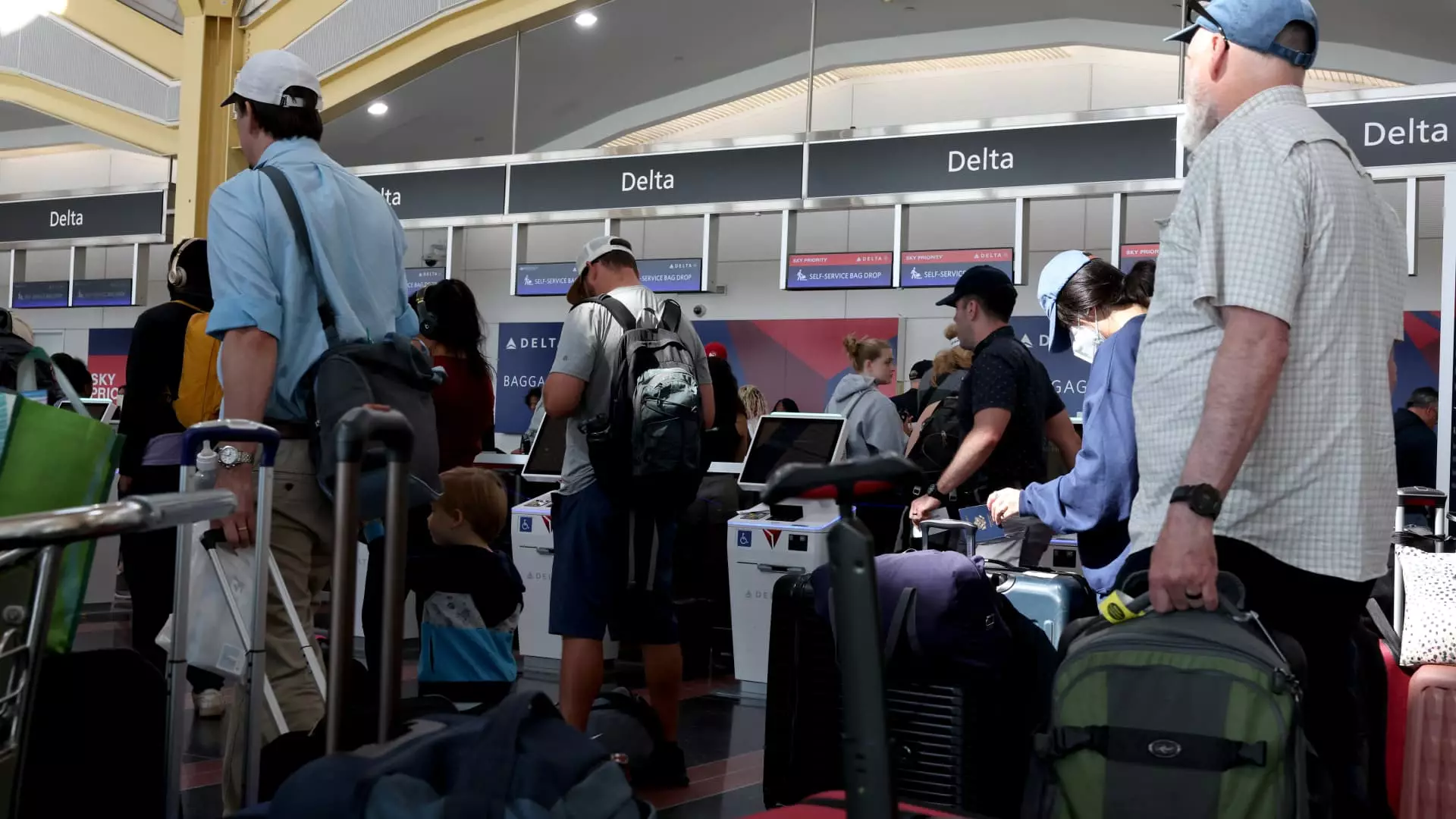In the midst of a global IT outage impacting major airlines like United, Delta, and American Airlines, chaos ensued as flights were grounded, leaving passengers stranded and frustrated. Eric Napoli, chief legal officer at AirHelp, described the situation as a bottleneck on numerous flights resulting in massive disruptions for travelers. The impact of such shutdowns brings to light the lack of preparedness and resilience in the face of unexpected IT failures within the airline industry.
Passengers affected by flight disruptions may be entitled to various forms of compensation, such as refunds, hotel accommodations, meal vouchers, or other remuneration. However, the extent of compensation largely depends on the airline’s policy, leaving travelers at the mercy of uncertain guidelines and procedures. This ambiguity creates a gray area where passengers may struggle to navigate their rights and entitlements in the event of flight cancellations or delays.
According to the U.S. Department of Transportation, customers are guaranteed a refund of the ticket price (including fees) if their flight is canceled by the carrier, irrespective of the reason. This rule applies even to non-refundable tickets, ensuring that passengers are reimbursed in the event of a canceled flight if they choose not to travel on an alternative flight. This policy serves as a safety net for consumers, offering financial protection in cases of unexpected flight disruptions.
The DOT stipulates that passengers are entitled to refunds for “significant” schedule changes or delays, without explicitly defining the term “significant.” Factors such as the length of delay, flight duration, and specific circumstances are taken into account in determining the eligibility for a refund. However, the lack of a concrete definition of “significant” raises questions about the consistency and transparency in the refund process for affected passengers.
While airlines are required to promptly pay refunds to customers starting Oct. 28, complications may arise for passengers affected by unforeseen IT outages like the recent global incident. Customers may need to navigate cumbersome procedures to claim refunds, especially if they purchased tickets through third-party booking sites rather than directly from the airline. This added layer of complexity further exacerbates the challenges faced by affected travelers seeking financial compensation.
Specific airline policies come into play when determining the obligations of carriers to passengers in the event of cancellations or delays. While there are no federal guarantees for travelers in certain circumstances, airlines typically commit to rebooking passengers on the next available flight and providing meals and accommodation for extended delays or cancellations. However, these commitments only apply to situations within the airline’s control, raising concerns about the limitations of passenger protections in cases of uncontrollable events like adverse weather conditions.
The issue of vendor accountability in the face of flight disruptions raises questions about the extent of responsibility that airlines hold in ensuring the reliability of their systems and services. Despite external factors such as cybersecurity disruptions impacting flight operations, consumers must remain vigilant and informed about their rights and entitlements when facing unforeseen travel disruptions. Keeping detailed records of expenses incurred during delays or cancellations is crucial for substantiating financial claims and seeking reimbursement from airlines or travel insurers.
The recent global IT outage highlights the vulnerabilities in the airline industry’s operational resilience and the complexities of navigating passenger entitlements in cases of flight disruptions. As travelers face uncertainties and challenges in claiming refunds and seeking compensation, the need for transparency, consistency, and consumer awareness becomes paramount in safeguarding passenger rights and financial interests.

